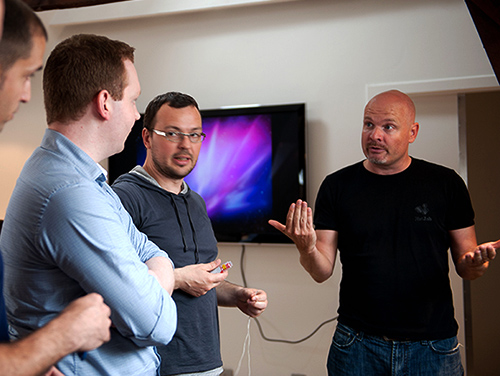Robert Bogue
December 11, 2015
No Comments
Becoming rich through the development of applications is a common dream. At the start of this series, I wrote how the road leads through independence. From there, I explained the idea of the lone wolf app developer. The last article was how to get folks together and do a sexy startup. However, this is the structural component of making the dream of retiring rich. It’s time to learn how to create the compelling apps that users will buy.
Perhaps the most successful mobile game of all time is the Angry Birds franchise from Rovio—a Finnish game developer. At first glance, it appears that Rovio has been making great mobile games forever; however, the truth is much different. Angry Birds was their 52nd game released. Not the first, nor even their fifth…, but rather their 52nd. Flappy Bird, another popular bird game, found its creator, Nguyễn Hà Đông, re-using a character he had created for a game that was cancelled a year earlier. Not even the titans of the mobile game market earned their chops on their first game. Instead, they had to “kiss a lot of frogs” before they found their prince.
Applications and Apps
It used to be that Electronic Arts built megalithic games with storylines and cinematography and big budgets. Today, PopCap Games (a division of Electronic Arts) builds small games to run on mobile devices. Instead of a game development cycle running years, they run months. Instead of teams of hundreds, they’re teams of dozens.
The market has changed. The market used to be that we had to invest and test to see if it worked at the end. However, today we’re focused on the minimum viable product (MVP). That is what can I get out into the market to test and let users react to it. We need to learn what did—and didn’t work when the users got it. What did they love? What did they hate?
Read more…










